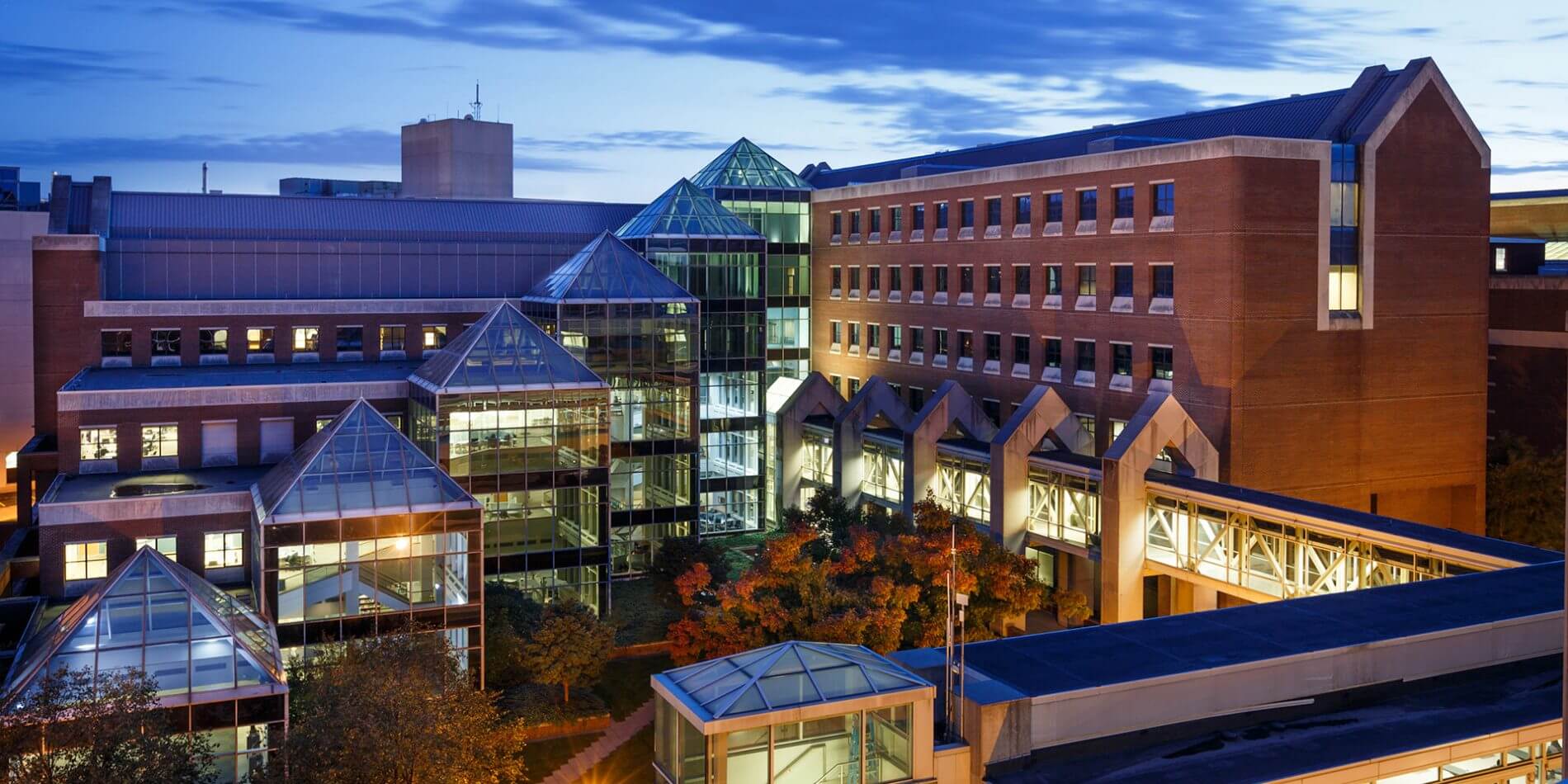
The Indiana University School of Medicine campus consists of three hospitals where fellows round. These include IU Health University Hospital, IU Health Methodist Hospital and Eskenazi Health. The hospitals are within walking distance of each other or can be reached by IU Health shuttles that run frequently between locations.
Indianapolis is a diverse city with people from all walks of life. It also has a large international population, including a Burmese population. Eskenazi Health is the county hospital and serves as the safety net hospital for the underserved in Indianapolis. Each of our hospitals serves a specific patient population. Methodist Hospital is a level one trauma center and cardiovascular center. We assist in the care of patients on ECMO, LVADs, and heart and lung transplants. Methodist Hospital also has a neuro critical care with neurosurgery and neurotrauma patients. University Hospital houses the Simon Comprehensive Cancer Center (including BMT unit) and is the site for all abdominal transplants (kidney, pancreas, kidney-pancreas, small bowel, multivisceral, and liver transplants). It also has a large surgical ICU and has the largest urology service of the downtown campuses.
The night float rotation eliminates most overnight calls. All calls are home calls. Overnight call on weekends will average about one night per month. Fellows work no more than 15 weekends per year. Weekends are both Saturday/Sunday and involve covering one of the four hospitals. The call night is only one evening (Friday or Saturday night) and covers all hospitals. The other two weekend evenings are free. Occasionally, there may be three fellows assigned call during the weekend and in that scenario one fellow would not have overnight call. The fellow covers only their assigned hospital for the weekend during the day.
Call nights start at 5 p.m. and end at 7 a.m. Fellows take home call and come in only for new ICU consults.
Indianapolis is a bustling metropolis. Indianapolis is close to many great state parks including Brown County state park and Lake Monroe. Indianapolis is home to the Indy 500, the Indiana Fever, the Indiana Pacers, the Indy Eleven soccer team and the Indianapolis Colts. We are also home to one the highest rated minor league baseball stadiums, home to the Indianapolis Indians. Indianapolis also has the world’s largest children’s museum and a fantastic zoo, right downtown. Around the holidays, the whole city is decorated with lights! They even decorate the Indianapolis Motor Speedway and Newfields, the city’s art museum. The city has a combined walking/bike trail that runs north and south called the Monon Trail and is connected with the Cultural Trail downtown. The combined trail runs connects some of the city’s most popular entertainment districts including Broad Ripple, Mass Ave and Fountain Square. There is something for everyone here!
For more information on Indianapolis see the Indy Visitors guides.
Our graduates practice in a variety of locations, including both academics and private practice. Many of our graduates enjoy Indianapolis so much, that they choose to stay. Others have started adventures in new locations. Our program leadership is well versed in visa requirements and assists our senior fellows with job placement.
Vacation is four weeks per year. Preferences of weeks off are requested in the spring prior to starting fellowship and every effort is made to accommodate requests.
Intersession consists of four weeks per year, two weeks in December and two weeks in April, where first years can experience an immersive educational experience without clinical duties apart from their weekly continuity clinic. All first years are off service and take no call during the intersession weeks. This time is used for rest and recharging as well as education. Topics include home dialysis modalities, access training, dialysis clinic visits, the job of the medical director at a dialysis facility, and transplant.
Indiana University School of Medicine provides its resident and fellow physicians a generous benefits package that includes comprehensive health and medical coverage as well as mental health and personal counseling care. In addition, paid time off for residents and fellows is encouraged for the purpose of increasing personal well-being. Learn more.
YES! First years attend the National Kidney Foundation spring meeting and second years attend the American Society of Nephrology Kidney Week in the fall. Cost of attendance is covered by the division.
We offer several inpatient and outpatient electives including a nephrology/hepatology service, ICU nephrology and procedure training. Subspeciality clinics include stone clinic, PKD clinic, renal/maternal fetal medicine clinic and renal-cardiology clinic.
We are looking for our next great group of fellows! Our program is all about teamwork and collaboration. We look for physicians who are ready to teach and be part of a team. We also want compassionate and caring physicians for our patients.
The COVID-19 pandemic has been a challenging time for all healthcare workers. Indiana University has taken actions to protect the fellows while minimizing impact to education. Early on in the pandemic, all educational events were transitioned to virtual meetings. Also, respite rooms were increased at all hospitals. The University ensured that all employees had access to resources to improve mental health and wellbeing. Weekly wellness meetings were started for fellows, at the division, department, and university wide levels. Proactive measures were undertaken by the University to lessen the burden on fellows, including close monitoring of census and additional faculty to help with the increased number of patients. Fellows continuity clinics were quickly adapted to accommodate virtual visits/telehealth. Things are continuing to evolve, but the university and department are both working tirelessly to ensure fellows education and wellbeing are protected.
While this year’s interview season will be different, virtual interviewing does not put applicants at a disadvantage. We will supply additional information about our school and location during your interview. Also, we are always available to answer any questions at any time during interview season.